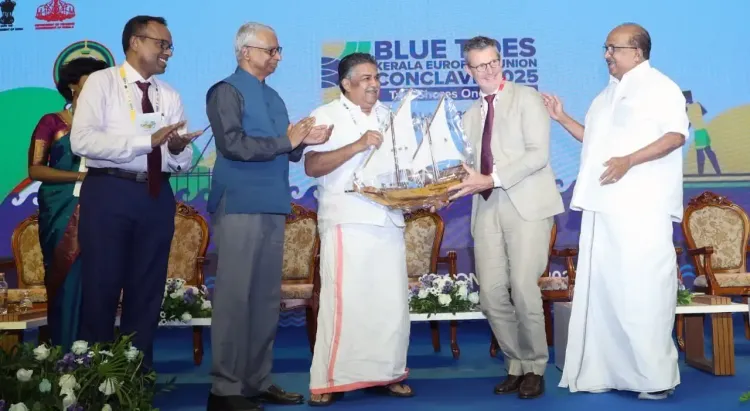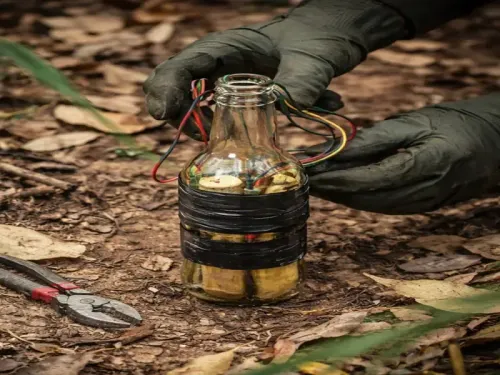Could the Kerala-EU Blue Economy Conclave Transform Investments Worth Rs 7,288 Crore?

Synopsis
Key Takeaways
- Investment Proposals: Rs 7,288 crore for Kerala's economy.
- Investor Interest: 28 investors signed expressions of interest.
- Focus on Sustainability: Emphasis on sustainable growth in fisheries.
- International Collaboration: EU's role in facilitating partnerships.
- Broader Economic Impact: Potential benefits in IT and healthcare sectors.
Thiruvananthapuram, Sep 19 (NationPress) The maritime and coastal economy of Kerala has received a remarkable uplift with investment proposals totaling Rs 7,288 crore emerging from the recently concluded two-day Kerala-European Union (EU) Blue Economy Conclave, titled "Blue Tides", held in Kovalam.
During the valedictory session, Minister for Fisheries, Culture and Youth Affairs, Saji Cherian, revealed that 28 investors formalized their expressions of interest at the conclave.
"This event has surpassed its original expectations, setting a commendable precedent for the entire country. It signifies the onset of a substantial advancement for Kerala’s fisheries and associated sectors," he stated.
The conclave was a collaborative effort between the Kerala and Central governments and the European Union, aimed at discovering sustainable and inclusive growth opportunities within the state’s coastal economy.
Cherian recalled Chief Minister Pinarayi Vijayan’s inaugural speech, where he described the event as a gateway to innovation and climate-resilient development for both marine environments and coastal communities.
A key outcome was the EU's proposal for Kerala to create a dedicated platform to ensure continuous collaboration with European nations.
EU Ambassador to India, Herve Delphin, noted, "Team Europe recognized numerous avenues for partnership with Kerala." He further emphasized that the conclave aligns with the momentum generated by the global Blue Economy Summit held in France earlier this year and highlighted opportunities in healthcare, IT, logistics, and sustainability.
Chief Secretary Dr. A. Jayathilak highlighted that the conclave extended beyond investment dialogues, addressing various topics such as advanced marine technologies, global supply chain integration, and strategies to tackle climate change.
The investment proposals, amounting to Rs 7,288 crore, are anticipated to yield immediate benefits for Kerala’s fisheries sector, particularly in deep-sea fishing, seafood processing, and marine infrastructure.
Ancillary sectors such as port development, shipbuilding, logistics, and cold chain systems are expected to flourish as EU investors introduce advanced technologies and sustainable practices.
Moreover, partnerships in IT and healthcare could expand the horizons of Kerala’s blue economy, ensuring enduring economic diversification and job creation along the coastline.










